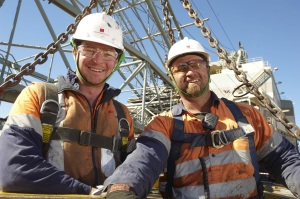The Skills in High Demand in Australia
Whether it’s calling one of the world’s most liveable cities home (hello Melbourne), exploring some of the most famous skylines (hi Sydney) or losing yourself (not literally we hope) in the stunning job opportunities in the outback, Australia offers a lot to potential new Aussies.
If you’ve got the skills and experience Australia needs then you could be moving, living, working and playing there soon. See if your skills are in demand in Australia.
About the Skilled Occupation List (SOL)
The SOL is updated regularly to reflect the changing needs of Australia. You need to nominate an occupation on the SOL if you’re applying for:
- Independent points-based skilled migration and you’re not nominated by a state or territory government agency – this is SkillSelect
- A Family Sponsored Points Tested visa
- A Temporary Graduate visa (subclass 485) – Graduate Work stream
About SkillSelect
SkillSelect is how Australia chooses which applicants to invite to apply for a visa. To apply you submit an Expression of Interest (EOI) online. You’ll then go into a pool of other applicants where you’ll be ranked on things like your work experience, skills, age and language abilities.
Depending on your ranking in the pool of applicants, you may then be invited to apply for a visa.
Find out more about SkillSelect.
The skills on the SOL
There are currently 191 occupations on the SOL. If you need a skills assessment as part of your visa application, you need to contact the assessing authority directly to get this. They will provide all the necessary forms and information you need and there will be a cost for this.
View the SOL, along with details of the relevant assessing authorities.
The Consolidated Sponsored Occupation List (CSOL)
If you’re applying for a visa under these programs:
- Points-based skilled migration and you’re nominated by a state or territory government agency under a State Migration Plan
- The Employer Nomination Scheme (ENS), and you’ve been nominated by an Australian employer to fill a position in an occupation that appears in the CSOL
- The Temporary Work (Skilled) visa – subclass 457
- The Training and Research visa (subclass 402)
You need to find your occupation on the CSOL, not the SOL.
Get help with your Australian visa
To help you through the Australian visa process, you can:
- Check out the Australian Government Department of Immigration and Border Protection’s website, which has details of all the options available to you.
- Get expert assistance from registered immigration advisers.
You can also start searching for your new job today – good luck!






